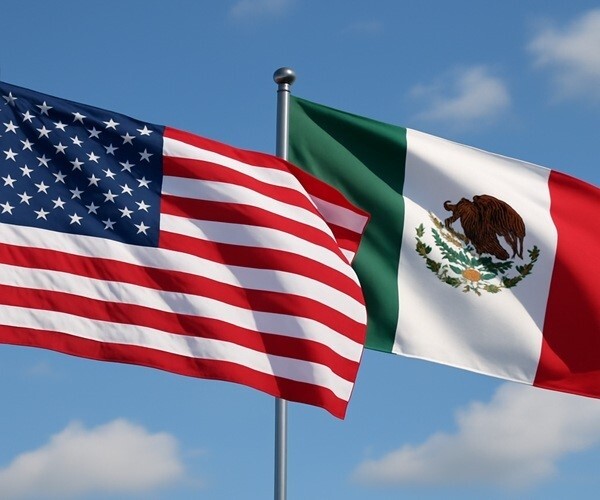

Mexico has secured a 90-day delay on the implementation of new 30 per cent US tariffs on selected imports, following an agreement between US President Donald Trump and Mexico’s President-elect Claudia Sheinbaum.

The extension, however, is conditional on Mexico’s commitment to address a broad range of non-tariff trade barriers that have long strained bilateral economic relations.
While the delay offers short-term relief, several existing tariffs remain firmly in place. These include a 25 per cent levy on products linked to fentanyl and unauthorized migration, another 25 per cent on automobiles, and a steep 50 per cent tariff on steel, aluminium, and copper. Additionally, the 17.09 per cent countervailing duty on Mexican tomatoes has not been lifted.
As part of the agreement, Mexico has pledged to tackle a wide array of regulatory and structural trade barriers identified in the latest report from the Office of the United States Trade Representative (USTR).
Among the most pressing concerns are regulatory delays for pharmaceutical, pesticide, and medical device approvals by Mexico’s health agency COFEPRIS. The US has also flagged Mexico’s bans on glyphosate and genetically modified cotton, calling them unjustified and harmful to agricultural trade.
Energy policy and market access under scrutiny
Energy sector restrictions remain a key sticking point. Mexico’s current policy of favouring state-owned giants PEMEX and CFE over private foreign investors has been cited by Washington as a major impediment to fair competition. The USTR has also raised concerns over Mexico’s control of lithium reserves and foreign investment restrictions in agriculture, livestock, forestry, and transport infrastructure.
In telecommunications, monopolistic practices by dominant market players have also come under scrutiny.
Kenneth Smith Ramos, Mexico’s former chief technical negotiator for the USMCA, said it is still unclear whether the Sheinbaum administration’s reforms will focus solely on the most frequently cited issues or evolve into a broader systemic overhaul. Jorge Molina, former NAFTA environmental chapter negotiator, noted the list of trade barriers flagged by the USTR is extensive, suggesting that piecemeal action may not be enough to satisfy Washington’s demands.
While Mexican business groups have welcomed the temporary halt on new tariffs, they warn that dismantling long-standing non-tariff barriers may demand extensive regulatory changes and potentially even constitutional reforms, especially in the energy and agriculture sectors.
Responses








